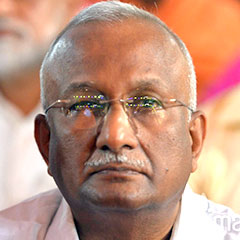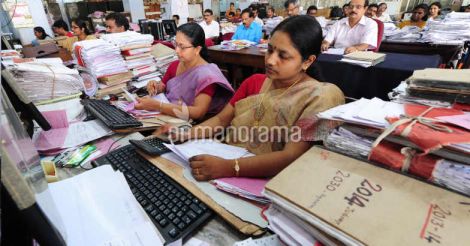Even as the unions of government employees prepare for healthy debates, some of the individual members continue to be apathetic and arrogant towards the common man who seeks their services.
The attitude of the bureaucrats has gone a sea change over the years. This was not the scene in the 1960s. I have known many officers who were revered for their affable interactions with the public. We can easily set the record straight if the government employees realize that they owe their salaries to the man standing in front of their office tables.
Read also | Suicide of farmer at Chembanoda: village assistant surrenders
A bureaucrat is not showing the humane face of administration when he yells at a taxpayer citing some complication. He should gently convince the citizen why he is unable to collect the tax on a property. Do not expect a common man to understand the legalities you cite. Still you could assure him with a smile.
Government offices can be more efficient if they adopt a first-come first-serve system. The government offices may be suffering from limited resources, but they could introduce a system to assure the service seeker with a possible date to address his woes. Take three or four months, but be ready with a solution when the citizen returns.
Our half-cooked e-governance does not help in promoting a foolproof system. Files still vanish and reappear in government offices because e-governance is not yet fully operational. Making services online has proven to be effective in reducing corruption.
Village officers knew about the land and its people when the posting was permanent. The officers started distancing from the people when they were sent around various assignments. We have to bridge this gap.
We have to make the penal provisions in the Right to Services Act more stringent and make people aware of the legal remedy. The Right to Information Act calls for a fine of Rs 25,000 from errant officers, but similar penalties in the Right to Services Act is meager. This is the reason for the act to be considered as weighing towards bureaucrats.
Political parties, voluntary associations and media could keep a watchful eye to ensure that the law is implemented. We have to expose apathetic and arrogant officials. Unfortunately, the political parties do not have such an agenda.
Kerala could take a lead from the states which have started help desks associated with each government departments. A person seeking a title deed on his land, for instance, does not have a mechanism to learn the process of securing the document. The government has to immediately introduce a “punching” system to ensure that the employees are present at work. The punching data should be linked to the salary slip to give the system more teeth. Many organizations mark as absent if employees come late to work frequently.
Another complaint is a shortage of employees. The government should implement measures to lessen the workload than creating new posts.
Social auditing has become inevitable. The system is already practiced in the national employment guarantee scheme and the food security scheme. Many states have appointed directors for social auditing, but Kerala has turned its back on the idea. The people have a right to know what transpires in each government office.
Everyone accepts law reforms and then just ignores them or interprets them according to their whims and fancies. We have to do more than cheering the proclamations if we were to stop the administrative machinery from taking more lives.
(The author is a former chief secretary of Kerala)

























 File photo of people working in a government office.
File photo of people working in a government office.